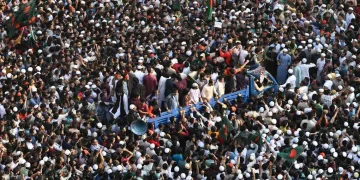Mathili: Mathili massacre is one of the bloodiest killings in pre-Independence era when 12 freedom fighters had fallen to the bullets of the British August 21.
A memorial service was organised at Mathli police station where people gathered and paid their tributes to Sahid Lakshman Nayak and other martyrs Sunday, Mathili IIC Pramod Mallick said.
The killing of 12 freedom fighters has now become history but one can never forget their supreme sacrifice as well as scores of others without whom achieving Independence for the country would have never become possible.
The soil of Old Hatapada under this block was stained with the blood of the 12 freedom fighters. A memorial dedicated to the martyrs stands tall in the area today.
The incident dates back to the period when Mahatma Gandhi had launched a non-violent struggle to free the country from imperial rulers. Gandhiji’s call for freedom struggle triggered an uprising against the British all over the country as well as in undivided
Koraput district where thousands of tribals joined the movement.
The incident took place when hundreds of tribals led by Sahid Lakshman Nayak of Tentuligumma village assembled at Old Hatapada. They took out a rally from Hatapada shouting slogans against the British and gheraoed the old police station at Mathili.
Tension prevailed when a freedom fighter Linga Katia of Timasput climbed atop the thatched roof of the police station and tried to unfurl the Tricolour.
The British police fired at him, killing him on the spot. The British police then went berserk and fired indiscriminately at the protestors, killing 11 of them on the spot.
The slain tribals were Samra Bisi Nayak of Manjariguda, Narasingh Damba of Nuaguda, Arjun Katia of Karnaguda, Suku Bate of Saunliguda, , Kudei Chhaturia of Rajpur, Nakul Madkami of Sargiguda, Guru Katia of Timasput, Gopi Pujari of Sanagumma, Balaram Bhumia of Temrupalli, Suna Jharia of Kiang and Udayanath of Bhaisaghat . A forest guard G Ramayarao was killed in the stampede that arose out of the firing.
The British government gave a political colour to the killings and arrested Lakshman Nayak. They framed him on charges of coup. He was kept in Berhampur jail and was hanged to death March 29, 1943. PNN






































